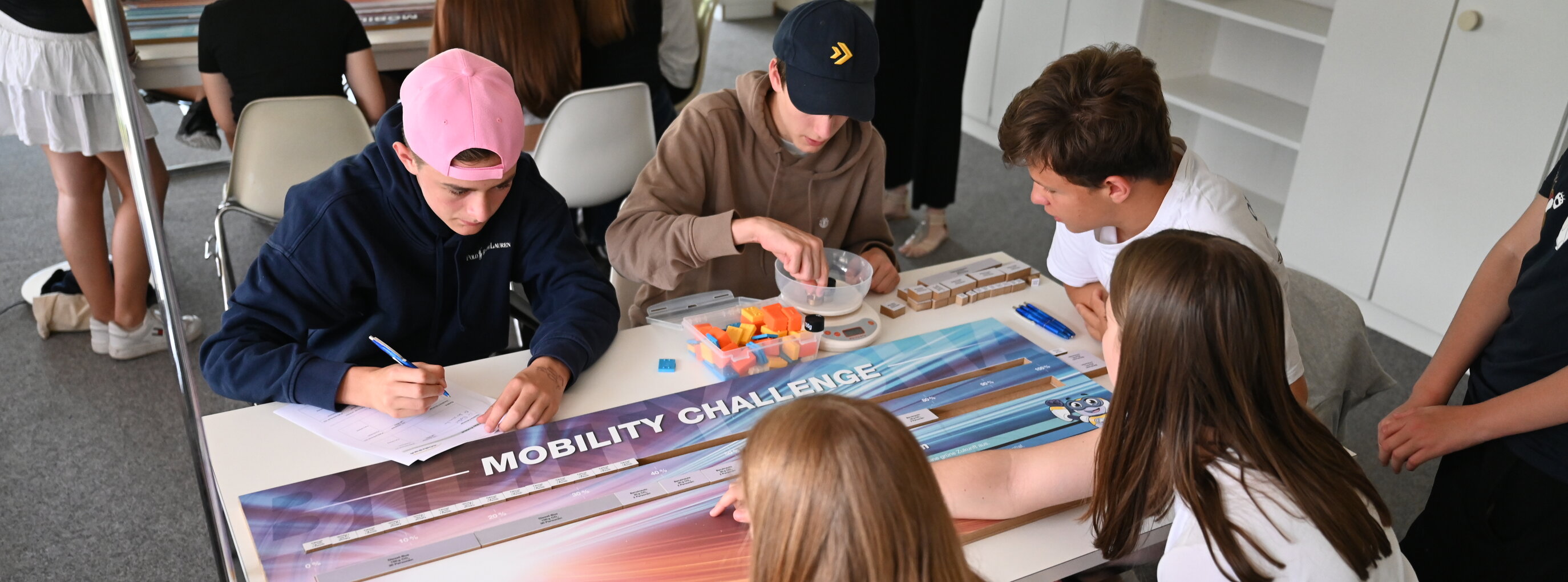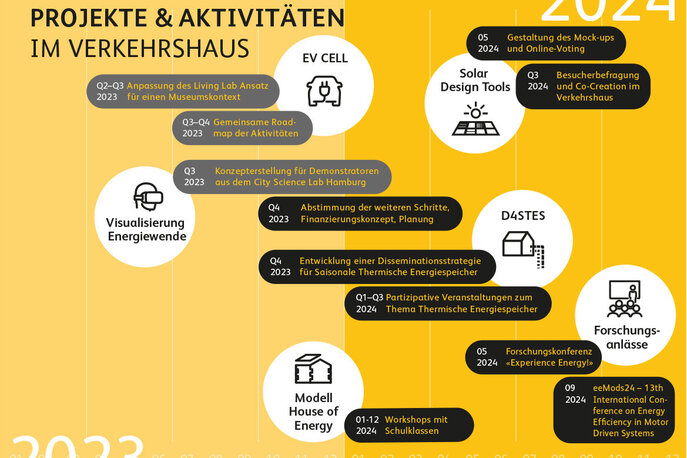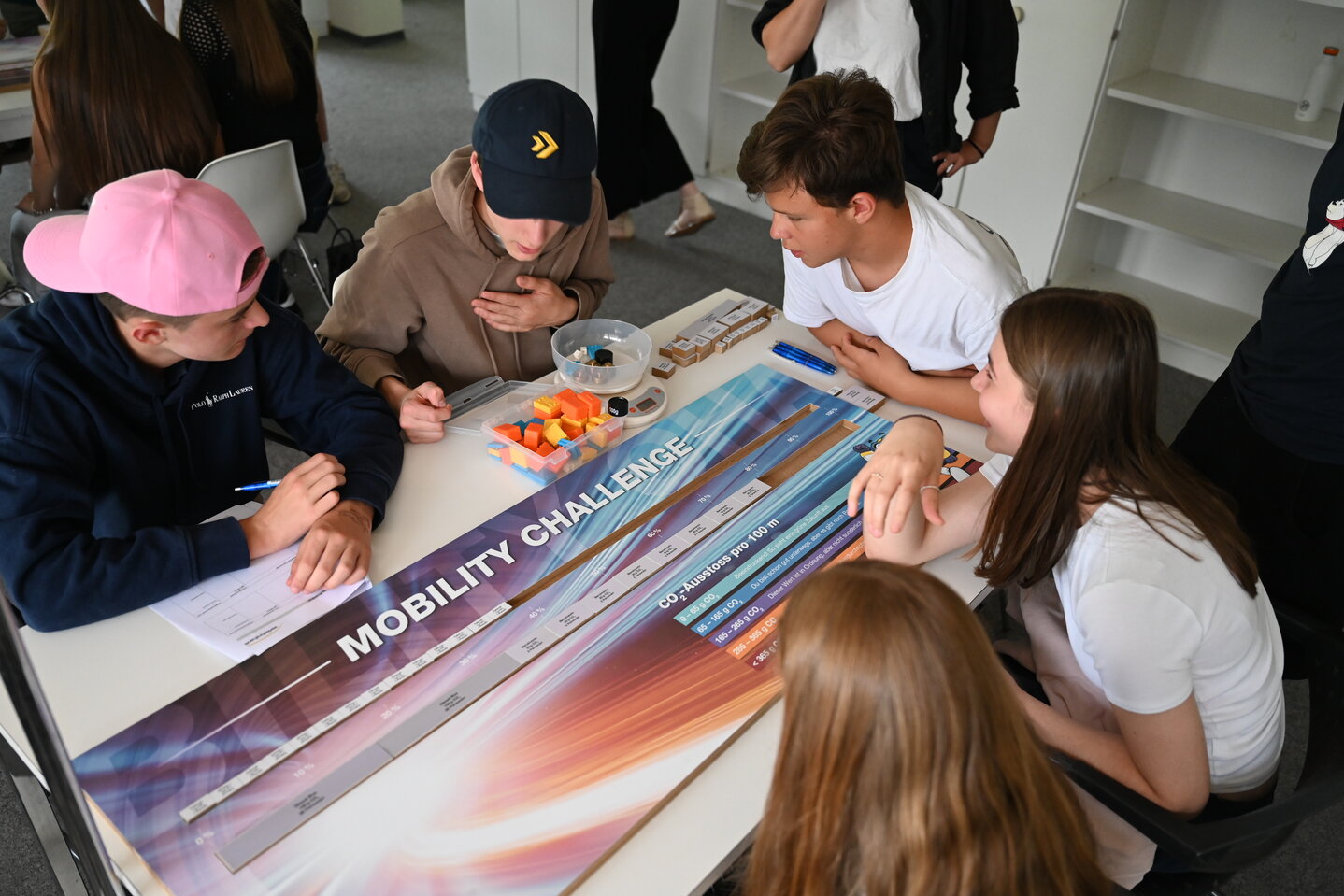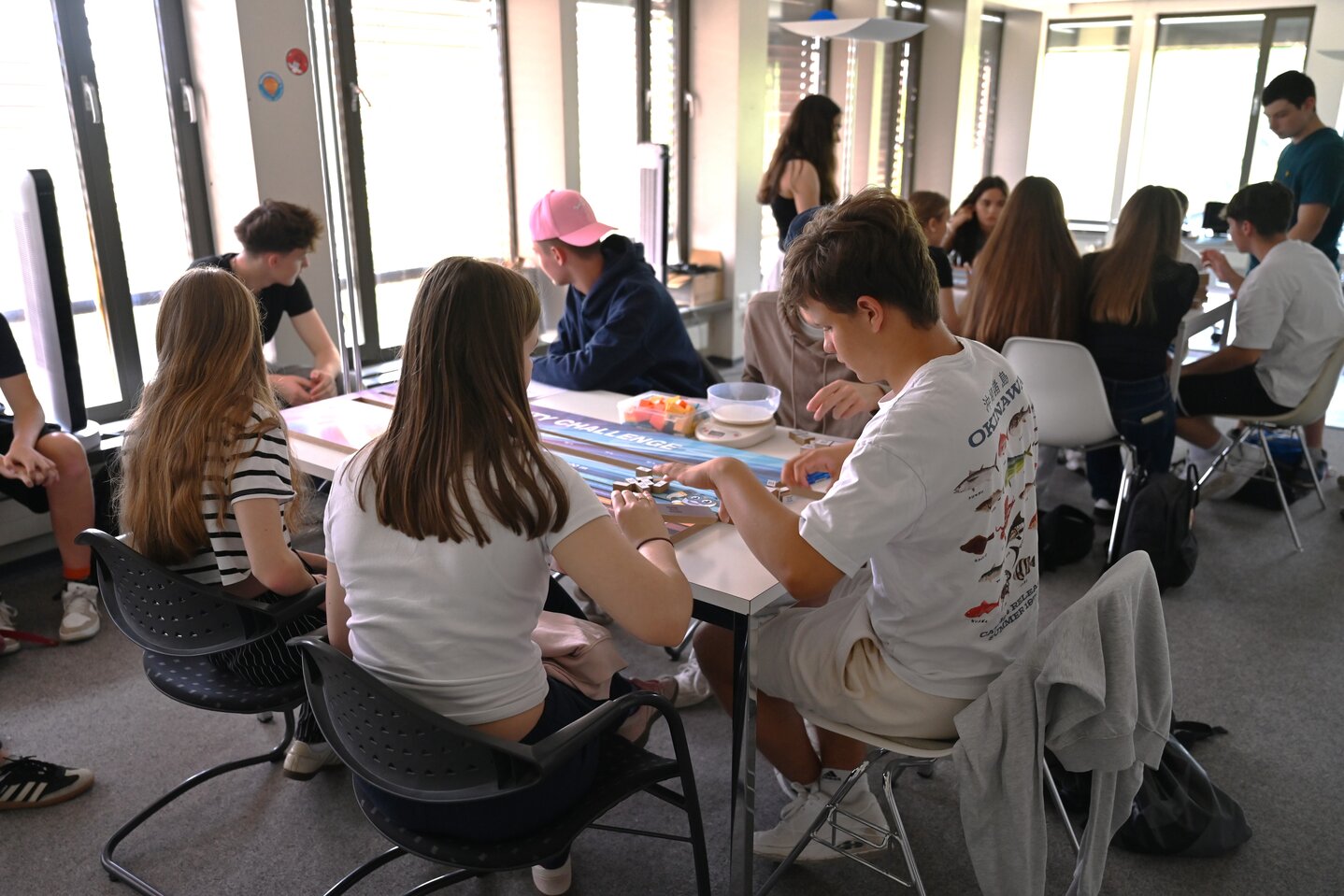
The Mobility Challenge is a simulation game designed to enable school classes and interested parties to address the current challenges of our mobility system and develop new approaches for a sustainable future.
The Swiss Museum of Transport, in collaboration with Lucerne University of Applied Sciences and Arts (HSLU), is developing a workshop that conveys the challenges of modern mobility in a playful and vivid way. The "Mobility Challenge" workshop has two key objectives: Firstly, young people should develop an awareness of the CO2 emissions and space consumption of different means of transportation (e.g. diesel bus, trolley bus, petrol car, bicycle, e-scooter). They also learn about the practical challenges and influencing factors that stand in the way of sustainable mobility.
A game board uses wooden elements and weights placed on a scale to make the CO2 emissions and space consumption of different means of transport tangible. The workshop starts with a theoretical input in the "Experience Energy!" exhibition hall of the Swiss Museum of Transport.
Upon request, the presentation can be held in English.
Moderation in English is available upon request. Workshop materials are provided in German only.
About the workshop
| Duration: | 1.5 hours |
|---|---|
| Location: | Swiss Museum of Transport. Meeting point: Entrance hall |
| Age: | From the 5th/6th primary class to the 3rd secondary class or beyond |
| Number of pupils: | Mindestens 8, maximal 25 |
| Costs: | The workshop is included in the museum visit |
| Material: | No material or prior knowledge is required |
| Date: | Freely selectable. Monday to Friday, 10:15 or 13:15 (or by arrangement). |
As part of the collaboration between the Lucerne University of Applied Sciences and Arts and the Swiss Museum of Transport, the Citizen Science approach is intended to strengthen the dialog between research and society. We are working on the development of workshops that will give pupils and other interested parties an understanding of the challenges of the transformation to a sustainable mobility system. In this workshop, participants will address the topics of air pollution, traffic congestion, comfort and satisfaction in order to develop a holistic, meaningful and sustainable solution for the mobility system of the future.
Citizen science approach
Experts from the fields of technology and construction are shaping the energy transition together with business, politics and society. It is of central importance that the research carried out is open to the public and that non-scientists are also actively involved in the work process from the outset. The citizen science approach focuses specifically on science communication, broad-based knowledge generation and co-creation in order to actively involve society in the projects.


